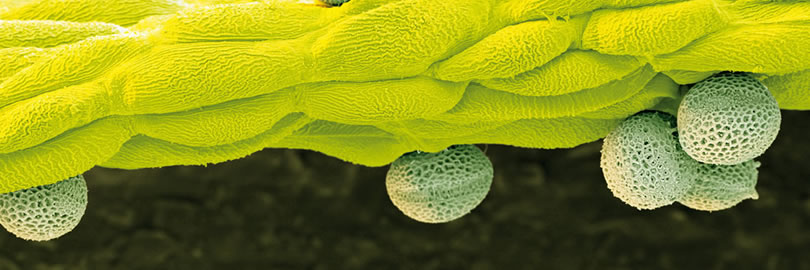




Biography: Wensheng Qin received his BSc and MSc in Agriculture and Biotechnology from Zhejiang University in China. He earned his Ph. D in Molecular Biology and Biotechnology in 2005 from Queen's University in Canada. He further received postdoctoral training at Stanford University in USA in Biochemistry and Biotechnology. During his studies, he was awarded multiple fellowships and scholarships such as NSERC Fellowship and Ontario Graduate Scholarship. Apart from the aforementioned studies, he worked in several other institutions including University of Toronto and University of Waterloo in Canada, Kansas State University and Yale University in USA, National Polytechnic Institute of Mexico. Qin has published 102 peer-reviewed papers and 7 book chapters. He has extensive research experience and holds expertise in the fields of Biorefining, Biofuels, Microbial Engineering, Molecular Biology and Biochemistry. Currently, Qin is a professor at Lakehead University in Canada and leading an active research group consisting of Ph. D and Master’s students, technical and postdoctoral research associates. Email: labposition@gmail.com.
Topic: Utilization of By-product Glycerol from Bio-diesel Plants as Feedstock for 2,3-butanediol Accumulation and Biosynthesis Genes Response of Klebsiella Variicola SW3
Abstract: The booming of biodiesel industry all over the world has led to generate a large amount (10% v/v) of crude glycerol, created an oversupply problem. Real-time qPCR and glycerol dehydrogenase (GDH) enzyme activity assay revealed that the overexpression of GDH gene resulted in an increased GDH enzyme activity, led to a markedly boosted 2,3-butanediol (2,3-BD) production. Based on these results, the mutant Klebsiella variicola SW3 obtained from newly isolated strain K. variicola SRP3 displayed a 1.4-fold increased 2,3-BD production of 82.5 g/L from 59.3 g/L, yielding 0.62 g/g using pure glycerol as only the substrate. However, in a batch culture, a high product yield 33.5 g/L (0.67 g/g) of 2,3-BD was accumulated within 96h using 50.0 g/L glycerol. Moreover, the strain SW3 withstanding high concentration (200.0 g/L) of crude glycerol displayed 64.9 and 29.25 g/L 2,3-BD in fed-batch and batch cultures respectively. Therefore, this bioconversion of low or negative-value crude glycerol to 2,3-BD –a value-added green product with potential industrial applications as a liquid fuel or fuel additive would represent a remarkable alternative to add value to the biodiesel production helping biodiesel industries development.

Biography: 1999.1--Now, professor of genetics on polyploid rice, Hubei university; 1982.7-1998.12 in Huazhong Agricultural University for Lecturer (1983), Associate professor(1986), professor(1992); 1979.7-1982.6 Wuhan University for Master Degree.
Topic: Research Advanced on Polyploid Rice and New Green Revolution
Abstract: The fact that more than 70% higher plants were polyploid and the yields of wheat, cotton, carola and other polyploid crops were doubled during their evolution from diploid to polyploid gives us inspiration: polyploid rice would be raised up its yield doubly than diploid. A new strategy of using double heterosis of the wide cross and polyploidization to breed super rice was developed by us. Its principle is different from conventional cross and hybrid rice breeding. Three key techniques including utilization of the parents with further relative distance, wide compatibility and Ph (pairing homeologous)-liked genes were applied. Here, we showed the results from using the strategy to break through two bottlenecks in polyploid rice breeding. A technique program of inducing polyploid rice with high frequency was established, and two lines of polyploid meiosis stability (PMeS) genes with high seed set rate alike Ph gene functioned in wheat were selected. More than 5000 selected lines and 300 elite lines or cultivars were induced into polyploid, more than 3000 polyploid combinations showed high seed set rate. Several combinations of polyploid intersubspecific rice with powerful heterosis had been developed. The demonstration culture also showed the more advantage than diploid hybrid rice. Their ployploid male sterile lines and restore lines had been bred. A series of polyploid combinations intersubspecific will be developed. Some polyploid interspecific and intergenomic hybrids had been established. More than 15hm2 of polyploid rice had planted and showed powerful heterosis , which increased 5.0~10.0% yield than diploid cultivars. The facts proved that two bottleneck problems in ployploid rice breeding had been overcome, a new time of polypoid rice breeding is coming, which will be beneficial to start a new green revolution and dissolve the crises of food shortage in the world.